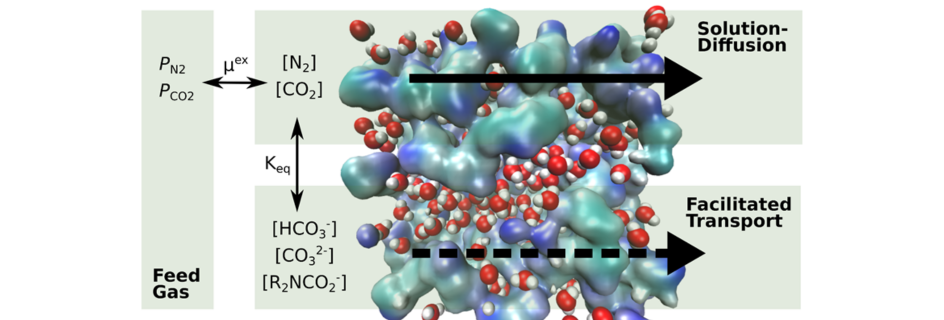Post date:
A £9M project to develop new chemical processing technology that could save hundreds of millions of tonnes of carbon dioxide (CO2) emissions has begun at UK Universities including the University of Edinburgh.
The School of Engineering’s Professor Maria-Chiara Ferrari along with Professor Neil McKeown of the School of Chemistry are working on the SynHiSel research programme to reinvent chemical separation methods and significantly cut total global energy consumption.
Sieving out CO2
The project will focus on improving the performance of membranes – material barriers that can also separate out harmful greenhouse gases such as CO2, and are central to some carbon capture technologies.
Professor Ferrari will lead a work package to improve the ability of such membranes to selectively sieve out CO2 and other chemicals. She will also work on so-called facilitated transport membranes for carbon capture, exploiting the membranes’ chemical compatibility with CO2 to enhance its ability to separate out this greenhouse gas.
Professor Ferrari explained “More selective membranes will lead to reduced carbon emissions from separations, that account for 10-15% of the total world energy consumption. My aim is to develop more efficient materials for carbon capture that will lead us towards net zero separations.”
Wider applications
The project, the biggest of its kind to date, seeks to develop more efficient ways of separating chemicals – processes that underpin crucial parts of everyday life including clean water treatment, food and pharmaceutical production, as well as CO2 removal.
It is estimated that these separations currently consume 10-15 percent of total energy usage, and that they could be made 10 times more efficient by creating new highly selective membranes. This could cut annual worldwide carbon dioxide emissions by 100 million tonnes and save £3.5 billion in energy costs.
The programme’s principal investigator Professor Davide Mattia from the University of Bath says the project aims to help the UK lead in developing new high-value, high-efficiency chemical processing techniques.
Professor Mattia explained: “Some of the biggest challenges we face – how to develop drugs and vaccines, ensure food security and quality, and how to make sure the water we drink is clean – all require some form of chemical separation. We want to improve our understanding of highly selective membrane technology to create value in manufacturing and make processes more sustainable.”
Research team
The SynHiSel programme team comprises: Prof Davide Mattia and Prof John Chew, University of Bath; Dr Patricia Gorgojo and Prof Peter Budd, University of Manchester; Prof Ian Metcalfe and Dr Greg Mutch, Newcastle University; Prof Neil McKeown and Prof Maria-Chiara Ferrari, University of Edinburgh; Prof Andrew Livingston, Queen Mary University of London; Prof Kang Li and Dr Qilei Song, Imperial College London.



